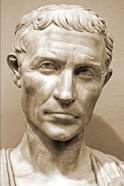Palm Sunday Assumptions And Fate

A destiny, oh it’s the rising sun
I was born, a shotgun in my hands
Behind the gun
I’ll make my final stand, yeah
That’s why they call meBad company
I can’t deny
The sun shines with brilliance this morning. It rises as a strong athlete arching into its early spring curvature in a clear blue sky.
Starbucks is inordinately quiet. I can hear clearly the strings and voices of the music playing. The crowd will arrive soon enough. Perhaps a bit later this morning. It is Palm Sunday.
With a twinge of nostalgia I read the passage in the Gospel of Matthew. I am not a church-goer. The story is told of Jesus entry into the capital city of the Jewish state, Jerusalem, that was under Roman occupation in the first century of the common era. Could there have been the equivalent of a local Starbucks at the time? Would I have been seated there?
Matthew’s account has simple elements: Jesus associates are directed to a certain address and borrow a donkey. This preparation being complete, Jesus rides upon the donkey entering the gates of the city proper. A crowd forms and grows. There is much cross talk, the spread of rumor as is always the case with populist movements. The upshot, Jesus is greeted as a celebrity, with cheers of acclamation, a crowd-contageon of excitement. The assumption apparently was that here was an individual with political intentions. The interesting complication inscribed within the assumption, was the implication of divine accreditation, some supernatural mana.
As I mentioned I no longer am a church-going person. But, these few lines in the Gospel of Matthew speak to me. As if by fate, destiny dictates that Jesus must enter the political and religious capital of the Jewish state in this manner. The note of destiny is reminiscent of what I read in Homers account of the bronze age Greeks in their epic contest with Troy. The gods and goddesses are present, off stage, participants in the drama. Matthew, who tells the story, quotes from the Old Testament writers (Zechariah and Psalms), saying, yeah, things had to play out this way. The Palm Sunday story is a segment in our epic story, as was Homer’s poetic work for the Greeks.
And what of the assumption(s) embedded in the scene described by Matthew? As an imaginary observer viewing the slow passage of Jesus amid the cheering crowds, from my table at “Starbucks,” I am certain that Pontius Pilate, the Roman Prefect of the Province of Judea was likely “sleeping in.” Pilate slept soundly under his assumption that the hegemony of Rome was absolute, guaranteed by the resources and skill of Rome’s army. The assumption embedded within Jesus manner of entry into the city, and of his reception by those drawn to see “what’s going on” was that here was someone with the political mo-jo to contend with Rome. The assumption that “peace, love, and understanding” is the way forward would have been lost on the crowd.
Palm Sunday assumptions.
And what of our own?
Curious states of mind, assumptions. Mine are never examined. Almost never. They are more like bodily states, felt dispositions–than a coherent thought. They are like a embodied weather that is atmosphere for the stream of ideas developed by the mind. Only when I am forced by a failure of my purpose, or the discomfort of pain, or the intrusion of an external threat–do I take the trouble to self-reflect and ask myself, “where did I go wrong?”
Otherwise the set of fixed assumptions that serve as the unnoticed frame work for my actions, function exactly as destiny. Most of them were absorbed from my birth family, and those experiences that were so early that they are now lost to memory. Some come from adult experiences of success or failure, and from the intellectual/social zeitgeist of this time in which I live.
Assumptions are analog to the manipulations of the gods.
2 thoughts on “Palm Sunday Assumptions And Fate”
Assumption (at least the kind where we base a decision on incomplete data) is a natural state. To move beyond an assumptive state of mind, we must attempt to keep vigilant in our decision making process. This is not easy. In my photography classes I tell the students we are hardwired to look for specific objects, relegating backgrounds, shadows, context, reflections, and other extraneous material to the superfluous. Learning how to take better photographs means becoming aware of the environment that surrounds our chosen subject. This is just as difficult as trying to maintain an awareness of our assumptions. Both traits are natural ways of viewing our environment and overcoming these characteristics will lead us into a greater understanding both of the world as a whole and our inner selves.
Awareness of assumptions is certainly a self-awareness. Something necessary to develop by much practice. I think the process is akin to creating art. Art aims at disclosing truth.